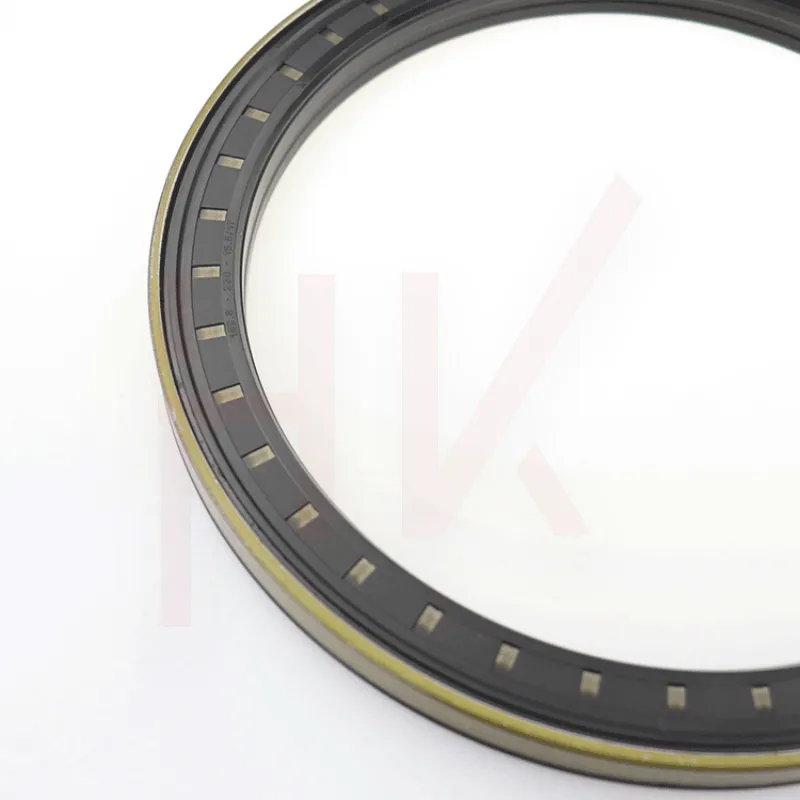Nov . 09, 2024 20:08 Back to list
Hydraulic Ram Oil Seals for Enhanced Performance and Reliability in Fluid Systems
Understanding Hydraulic Ram Oil Seals
Hydraulic ram systems are vital components in various industrial applications, including construction machinery, agriculture, and automotive industries. At the core of these systems are hydraulic seals, particularly oil seals, which play an essential role in ensuring the efficient operation and longevity of hydraulic rams. This article delves into the importance, types, and maintenance of hydraulic ram oil seals.
Importance of Hydraulic Ram Oil Seals
Hydraulic systems rely on the ability to maintain a high-pressure environment to operate effectively. Oil seals are crucial in this aspect—they prevent hydraulic fluid from leaking out of the system while also keeping contaminants such as dust and debris from entering. When properly sealed, hydraulic rams can achieve optimal performance, with improved efficiency and reduced wear on components.
A malfunctioning seal can lead to severe issues, including hydraulic fluid leakage, loss of pressure, and ultimately system failure. This not only affects the equipment's performance but can also lead to costly damages, whether that be through repairs or loss of operational downtime. Hence, ensuring the integrity of oil seals in hydraulic rams is essential for sustained productivity.
Types of Hydraulic Ram Oil Seals
Hydraulic oil seals come in various designs and materials, each suited for specific applications. The most common types include
1. Nitrile Rubber Seals (NBR) These are widely used due to their excellent resistance to hydraulic fluid and temperature variations. NBR seals are perfect for general-purpose applications but may not withstand certain chemicals.
2. Fluoroelastomer Seals (FKM) Known for their exceptional resistance to high temperatures and aggressive chemicals, FKM seals are ideal for demanding environments, such as those found in the automotive and aerospace industries.
3. Polyurethane Seals These seals provide great wear resistance and are often used in high-pressure applications. Their elasticity helps maintain a tight seal even under fluctuating temperatures.
4. PTFE Seals PolyTetraFluoroEthylene is known for its low friction properties and chemical resistance. PTFE seals are useful in applications where contamination must be minimized, such as in pharmaceutical and food processing industries.
hydraulic ram oil seals

Choosing the right type of oil seal for a hydraulic ram depends on the working environment, the type of hydraulic fluid used, and the specific operational requirements of the machinery.
Maintenance of Hydraulic Ram Oil Seals
Regular maintenance of hydraulic ram oil seals is essential for ensuring their longevity and effectiveness. Here are some best practices
- Routine Inspections Regularly inspect seals for signs of wear, cracking, or deformation. Early detection of issues can prevent catastrophic failures.
- Proper Installation Ensure that seals are installed correctly. Misalignment or excessive force during installation can lead to premature failure.
- Fluid Quality Checks Monitor the quality of hydraulic fluid. Contaminated or degraded fluid can compromise seal integrity.
- Operating Conditions Be mindful of the operating temperature and pressure. Overheating or exceeding pressure ratings can significantly shorten a seal's lifespan.
- Replacement Schedule Implement a replacement schedule based on manufacturer recommendations and operational experience. Ensuring that seals are changed at regular intervals can prevent unexpected failures.
Conclusion
Hydraulic ram oil seals, though often overlooked, are integral to the functionality and reliability of hydraulic systems. They not only prevent fluid leaks but also protect the internal components of machines from dirt and contaminants. Investing in quality seals, understanding their types, and adhering to maintenance practices are crucial for the optimal performance of hydraulic rams. As industries continue to evolve, staying informed about advancements in seal technology will further enhance the efficiency and reliability of hydraulic systems.
-
TCN Oil Seal Metal Ring Reinforcement for Heavy Machinery
NewsJul.25,2025
-
Rotary Lip Seal Spring-Loaded Design for High-Speed Applications
NewsJul.25,2025
-
Hydraulic Cylinder Seals Polyurethane Material for High-Impact Jobs
NewsJul.25,2025
-
High Pressure Oil Seal Polyurethane Coating Wear Resistance
NewsJul.25,2025
-
Dust Proof Seal Double Lip Design for Construction Equipment
NewsJul.25,2025
-
Hub Seal Polyurethane Wear Resistance in Agricultural Vehicles
NewsJul.25,2025
-
The Trans-formative Journey of Wheel Hub Oil Seals
NewsJun.06,2025
Products categories
















